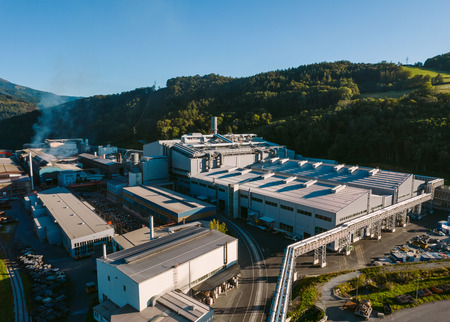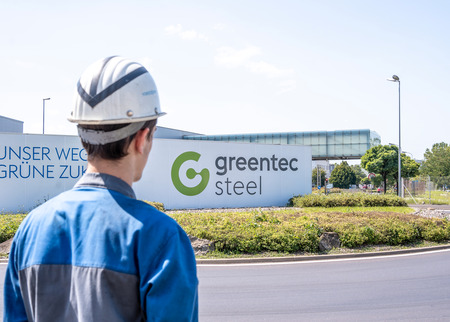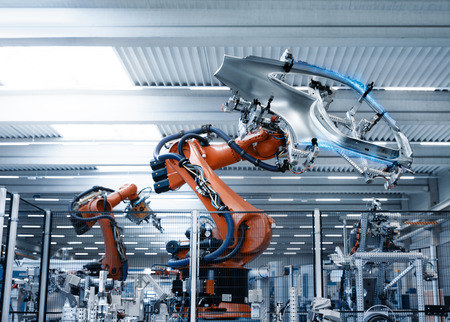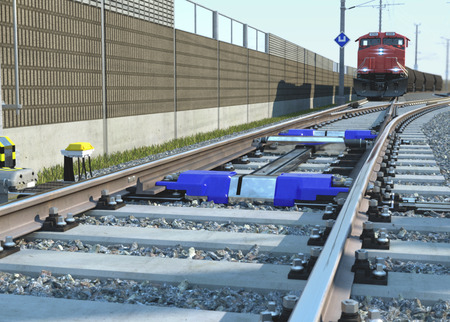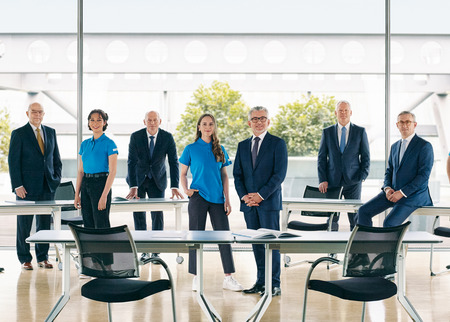- Revenue, earnings, and equity at all-time high
- Despite many highs and lows, the business year 2021/22 was excellently managed thanks to robust strategy and workforce commitment
- Revenue increased 36.9% year over year, from EUR 10.9 billion to EUR 14.9 billion
- Operating result (EBITDA) doubles to EUR 2.3 billion (previous year: EUR 1.1 billion); EBITDA margin: 15.4%
- Profit from operations (EBIT) multiplies year over year to EUR 1.5 billion (previous year: EUR 338.2 million); EBIT margin: 9.7 %
- Profit before tax and profit after tax also at all-time high at EUR 1.4 billion and EUR 1.3 billion respectively
- Equity climbs to new record level of EUR 7.1 billion; gearing ratio reduced further to 32.4% as of March 31, 2022 (previous year: 48.5%)
- Number of employees (full-time equivalent) rose by 3.2%, from 48,700 to 50,200
- Dividend of EUR 1.20 per share proposed to the Annual General Meeting (previous year: EUR 0.50)
- Outlook 2022/23: EBITDA between EUR 1.8 billion and EUR 2 billion
voestalpine posted record results in the business year 2021/22 (April 1, 2021 – March 31, 2022), despite an extremely challenging environment resulting from the global COVID-19 pandemic, supply chain disruptions, huge rises in the prices of raw materials and energy, and finally the impact of Russia’s invasion of Ukraine.

In the business year just closed, voestalpine once again demonstrated its great flexibility and adaptability. By maintaining our clear focus on measures to boost efficiency, we were able to exploit the positive economic environment during the business year as best we could. We succeeded in securing our operations through suitably adjusted measures within a very short time following the outbreak of the war in Ukraine.
In the business year 2021/22, demand for the steel and technology Group’s high-quality products developed along extremely robust trajectories in almost all market and product segments. Even the Automotive Components business segment, which was strongly impacted by disruptions to supply chains and related production curtailments, recorded a satisfactory performance. The development of the Railway Systems segment was once again stable. Following the economic recovery, the Aerospace segment, which had been hugely impacted by the pandemic, developed as positively as the energy sector, which was able to profit from the rising oil and natural gas prices. The boom in the Warehouse & Rack Solutions business segment, which is driven especially by the growing trend toward e-commerce, continued unabated in the reporting period. “We will continue to concentrate on high-tech segments with the most demanding quality standards, and work together with our customers to drive innovation. As before, the stated goal is to continue driving the company’s value-enhancing growth. This is supported by our positive start to the business year 2022/23. We are based on an excellent financial footing and have a good level of orders for our high-quality products in the key segments, at least through to the Northern summer. However, uncertainties arise due to it being almost impossible to forecast economic development in the second half of the calendar year 2022,” says Eibensteiner.
Revenue, earnings, and equity reach all-time high
In terms of both revenue and earnings, as of March 31, 2022, the voestalpine Group closed the books on its most successful business year since its founding. Revenue rose 36.9% in a year-over-year comparison, to EUR 14.9 billion. The operating result (EBITDA) also developed positively, doubling year over year to EUR 2.3 billion (2020/21: EUR 1.1 billion). Profit from operations (EBIT) was outstanding, rising from around EUR 340 million in the previous year to EUR 1.5 billion. The EBITDA margin amounted to 15.4%, and the EBIT margin to 9.7%.
Active debt reduction measures over the past years resulted in further improvement to net financial debt, shrinking it to EUR -71.8 million for the business year just closed (2020/21: EUR -103.4 million). This resulted in a profit before tax of EUR 1.4 billion (previous year: EUR 234.8 million). The result of discontinued operations includes a positive valuation for voestalpine Texas of EUR 256.6 million. At EUR 1.3 billion, profit after tax has also risen significantly (previous year: EUR 31.7 million).
The gearing ratio (net financial debt as a percentage of equity) was again significantly reduced, to 32.4%, from its level of 48.5% in the previous year. Net financial debt is significantly lower, at EUR 2.3 billion (previous year: EUR 2.7 billion). This equates to the lowest year-end net financial debt since the business year 2012/13 and to the lowest gearing ratio since the acquisition of Böhler-Uddeholm in the business year 2007/08. The voestalpine Group’s equity surpassed the EUR 7 billion mark for the first time in its history.
As of March 31, 2022, the number of employees in the voestalpine Group worldwide amounted to 50,200 (full-time equivalent) which is 3.2% (1,571 FTE) more than in the previous year.
Proposed dividend: EUR 1.20
Subject to the approval of the Annual General Meeting of voestalpine AG on July 6, 2022, a dividend of EUR 1.20 per share will be paid to the company’s shareholders. Only three times since the company’s IPO in 1995 has a higher dividend been paid. Relative to the voestalpine share’s average price of EUR 33.63 in the business year 2021/22, the dividend yield is 3.6%, a substantial increase over the previous business year’s 2.0%.
Special steel plant in Kapfenberg starts up in Northern summer 2022
The world’s most advanced special steel plant at the voestalpine site in Kapfenberg will gradually be commissioned this summer, operating at full capacity from fall onwards. Despite an exceptionally difficult operating environment and delivery bottlenecks in almost all sectors, work on the investment project continued without disruption. The first facilities are already undergoing testing at the plant which will produce 205,000 tons of special steels for the international aerospace, oil and natural gas, automotive, and toolmaking industries. The new special steel plant will secure around 3,000 jobs at the Styrian voestalpine sites in Kapfenberg and Mürzzuschlag. As already communicated, costs will rise by around 10% to 20% over the original planned investment of EUR 350 million due to the challenges associated with the COVID-19 pandemic and delays in deliveries from equipment suppliers.
In total, voestalpine invested EUR 710 million in the business year 2021/22, representing a 16% rise over the previous year. Investment expenditure was focused on technical optimizations to existing assets and replacement investments. Over the coming years, voestalpine will again increasingly invest in highly profitable growth projects in its processing divisions. Another particular focus will be on implementing the technology transformation for decarbonization at the steel producing sites in Linz und Donawitz.
greentec steel for a successful future
voestalpine is commited to the global climate goals and greentec steel is the Group’s ambitious step-by-step plan for green steel production. voestalpine’s mission is carbon neutral steel production using green hydrogen by 2050, for which the Group is already undertaking intensive research into promising breakthrough technologies. In an important intermediate step toward carbon neutral steel production, voestalpine is planning an incremental switch from the coal-based blast furnace route to electric arc furnace technology at the Group’s steel facilities in Linz and Donawitz as early as 2027. This conversion alone would allow carbon emissions from steel production to be significantly reduced by around 30% from 2027. In March 2022, the Supervisory Board of voestalpine AG approved the initial implementation steps for the technological transformation. A decision by the Supervisory Board as to final approval of the investments required for the two electric arc furnaces will be taken next year, in turn making it possible to begin construction in 2024.
Outlook for the business year 2022/23
The outbreak of the war in Ukraine along with the resulting sanctions against Russia brought an abrupt end to the strong momentum that the economic rebound generated once pandemic-related restrictions had been lifted, curbing economic growth in Europe yet again. In North America, too, growth already declined slightly and unexpectedly in the last quarter of the company’s business year 2021/22. China’s zero-COVID strategy is not only slowing down the country’s own economic momentum. Given the strong interdependence of global supply chains, we expect its ramifications to affect both Europe and North America also.
Market sentiment thus clouded over at the start of the company’s new business year 2022/23. The situation is further aggravated by the fact that the parameters of macroeconomic growth—first and foremost, the duration and course of the Ukraine war as well as the political reactions thereto—largely are imponderable.
Volatile raw materials and energy prices as well as future developments in the COVID-19 pandemic further deepen the uncertainty. So far, China has consistently maintained its zero-COVID strategy. This might lead to temporary bottlenecks in global supply chains during the current business year.
In light of the difficult environment overall, the Group’s excellent financial footing and high order backlog at the start of its new business year give voestalpine a decisive edge. The company’s order books are filled through to the Northern summer of 2022 at least, and longer for some product and customer segments. The structure of our contracts— which comprise short, medium, and long terms—will provide additional stability.
Despite good demand for cars, the automotive industry will again have to contend with supply chain constraints in the business year 2022/23. However, some improvement in this situation should be expected in the course of the fiscal year.
The aerospace industry is seeing an upward trend at this time, which should persist throughout most of the business year 2022/23.
High energy prices will continue to drive demand from the oil & natural gas industries.
The construction and mechanical engineering sectors as well as the white goods and consumer goods industries are currently showing solid demand.
As in the past, the railway infrastructure segment should serve as a stabilizing factor on the whole throughout the business year.
Against this backdrop, we expect the Group to post good earnings performance for the first quarter of the business year 2022/23. Portions of the second business quarter should also benefit from current order levels even though the momentum will decline, as is generally the case during the Northern summer.
However, major uncertainties cloud the forecast for the business year’s second half. Assuming that, overall, the global economy will cool off but will not suffer any additional major economic distortions due to the Ukraine war; due to new, aggressive COVID-19 waves; or due to large-scale disruptions of international supply chains, the Management Board of voestalpine AG expects the Group to generate EBITDA of between EUR 1.8 billion and EUR 2.0 billion for the business year 2022/23.
The voestalpine Group
voestalpine is a globally leading steel and technology group with a unique combination of materials and processing expertise. voestalpine, which operates globally, has around 500 Group companies and locations in more than 50 countries on all five continents. It has been listed on the Vienna Stock Exchange since 1995. With its premium products and system solutions, it is a leading partner to the automotive and consumer goods industries as well as the aerospace and oil & gas industries; it is also the world market leader in railway systems, tool steel, and special sections. voestalpine is fully committed to the global climate goals, and its greentec steel program represents a clear plan for decarbonizing the production of steel. In the business year 2021/22, the Group generated revenue of EUR 14.9 billion, with an operating result (EBITDA) of EUR 2.3 billion; it had about 50,200 employees worldwide.
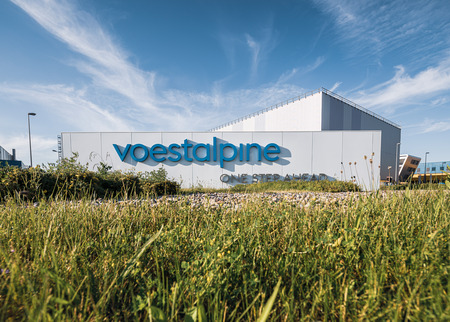
Guezel_Haase_Zöbinger.jpg)
